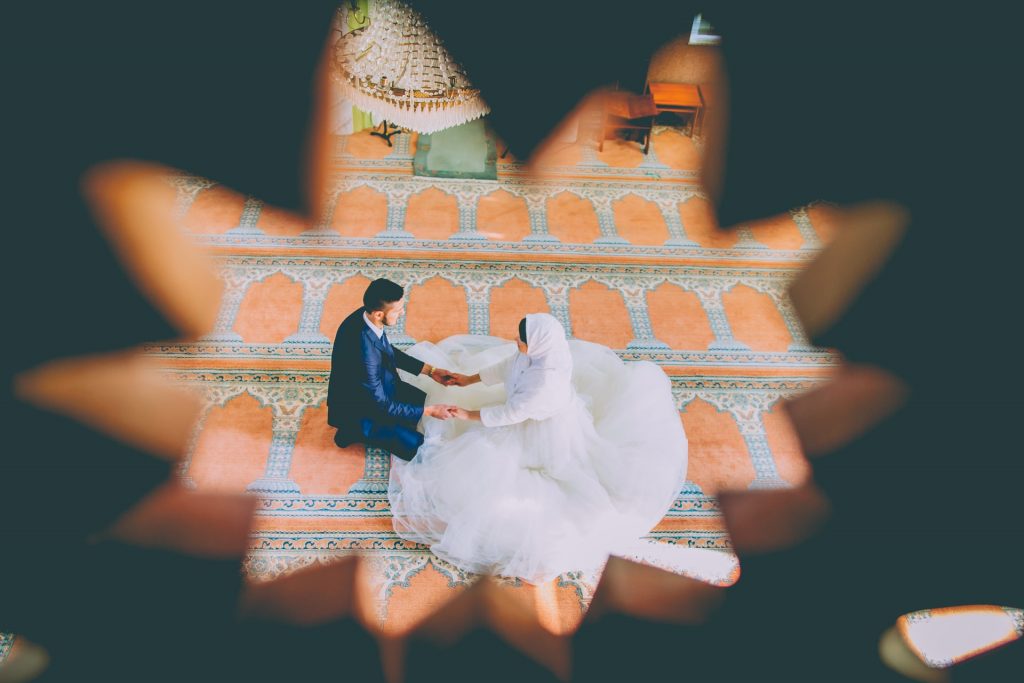Cape Town, South Africa is filled with different cultures and creeds. For weddings, this means that many you attend will be different from the traditional “white wedding” introduced by the West.
One demographic with a variety of wedding traditions that differ from the “norm” is the Cape Malay culture. There are several parts, including pre-wedding ceremonies, events on the wedding day, and more.
Given the large community of Cape Malay people in the city, it’s likely that you will eventually be invited to a wedding which requires you to know a bit about the traditions. Instead of showing up to the wedding and feeling confused about some of the customs being practiced, it’s best to get clued up prior to the ceremony. The more you know the better!
Here are some Cape Malay wedding traditions to get you started:
Marriage Intentions:
After a couple decided they are ready for marriage, the parents of the man approach the parents of the women to ask for their daughter’s hand. This takes place across two separate meetings of the families. The second meeting is where the man’s family receives consent from the woman’s family so that the couple can marry. At this meeting, together they decide on a date for both the engagement ceremony and the Nikkah (marriage).
‘Bruidskamer’:
Once the wedding planning begins, the groom-to-be has the task of setting up the ‘Bruidskamer’ (bridal chamber i.e. the house they will live in together after they marry, since in this culture people do not move out of their family homes until they get married).
Families are filled with excitement during this time in the lead up to the wedding. Everyone including aunts, uncles, and cousins are involved in the organizing of the new home and other wedding preparations.
Getting Packed in:
The bride is not allowed to see the ‘bruidskamer’ until after the wedding, therefore her family spends a few nights prior to the wedding packing her personal belongings in to the new home.
Nikkah:
The formal wedding ceremony is called the Nikkah, and it usually happens at a mosque on the morning of the wedding prior to the reception.
The Nikkah is essentially a ceremony in which the groom accepts a proposal from the bride’s father to marry her. There are certain words that have to be uttered by the groom and the bride’s father in order to make things official. Specifically, the groom has to accept the dowry amount that he has to pay.
The Imam (or leader of prayer) at the mosque will then recite a sermon, after which he will have the groom recite a few words in Arabic. He will say: “Qabil-tu nikah haha linafsi biethaalik”, which translates to “I have accepted her marriage to myself for that dowry”. The marriage is then formalized.
Thereafter, the groom makes his way to the bride who awaits nearby. He will remove her veil and place the wedding ring on her finger.
The reception:
After the Nikkah, the couple will have a reception where guests are treated to a variety of foods and favorites. At the end of the reception, the bride is collected by women from the groom’s family called the “Hadjies”. They will speak to the bride’s parents, and then escort her to the ‘bruidskamer’.
In a heartwarming moment as she leaves the wedding venue with her groom’s aunts, the bride hugs all of her family members as wedding guests recite the “Salawaat,” which is melodious praise for the Prophet.
The groom leaves the venue before, in order to be waiting for his wife when she arrives at their new home.
Image: Unsplash




















